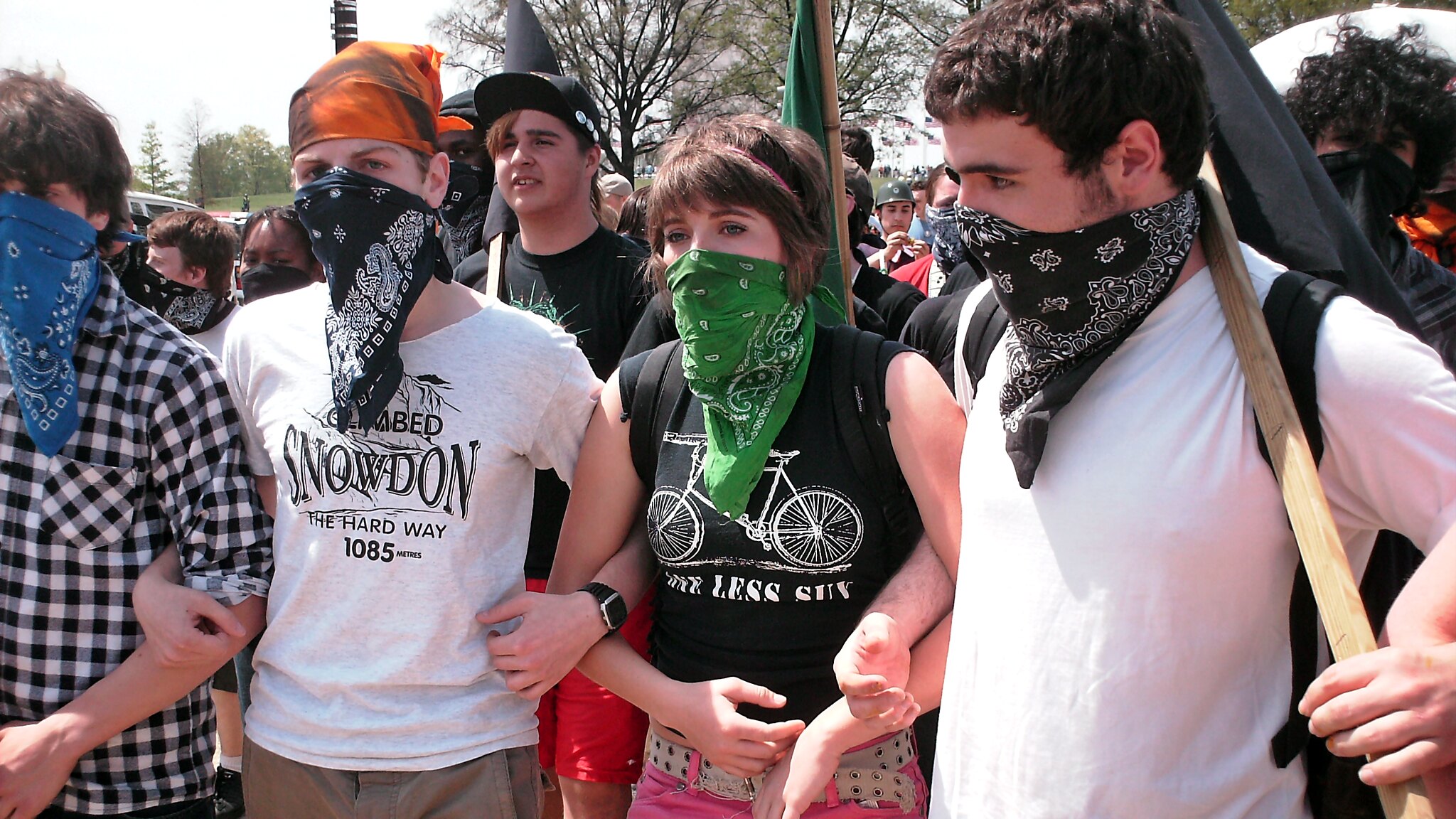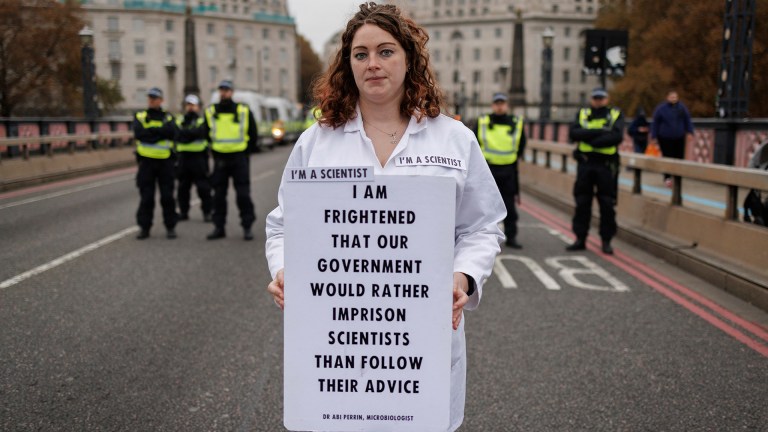The Public Order Bill would create “a hostile environment for peaceful protestors”, the parliamentary committee on human rights has warned, in a damning new report urging ministers to revise the new bill.
Linking arms during a protest could be punishable by 51 weeks in prison under the proposed legislation, which puts “fundamental democratic rights at risk”, the committee said, urging the government to address “only truly disruptive offences”.
“Locking on” is a tactic used by protestors to make it difficult for police to remove them from the area, and could involve using glue or a padlock to attach part of the body to the ground or railings. The tactic was used by environmental protest group Insulate Britain, who have glued themselves to roads and sat down in front of traffic in recent high-profile actions targeting rush-hour commuters to make the biggest impact.
But without a clear definition, the report warns “‘locking-on’ could encompass actions as simple as linking arms with another individual and would be met with a prison sentence of up to 51 weeks.”
The bill would also grant police new stop and search powers that would let officers conduct searches without reasonable suspicion, leaving “peaceful protestors at risk of arbitrary, discriminatory and invasive treatment.”
The cross-party group of MPs and peers called the legislation “unnecessary interference” that meddles with the “presumption of innocence and the right to fair trial” by shifting the burden of proof onto the protestor.










